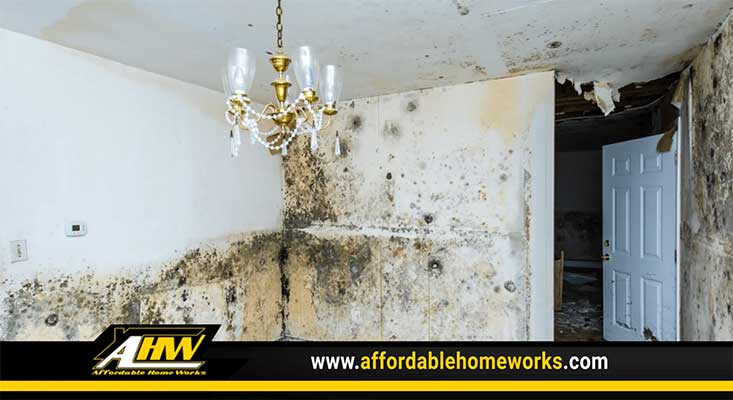
Is mold remediation really necessary?
Mold remediation is critical before more problems arise. Refusing to seek expert treatment can be harmful to your and your family’s health. Furthermore, attempting to remove mold on your own may result in re-infestation.
Do mold bomb foggers really work?
Mold foggers are useful, however their significance in mold cleanup is modest. If you want to prevent mold spores from growing and get rid of musty odors, fogging is worth the effort. Nonetheless, it should be the final stage in your mold removal procedure.
Does dry fog mold removal work?
To summarize, while fogging can “kill” mold throughout a property, it can also have unexpected repercussions. Furthermore, eliminating the mold does not constitute adequate remediation since the mold growth must be physically removed because destroying it may leave behind spores that induce allergic or toxigenic reactions.
What if mold is behind drywall?
Mold development behind your walls can cause substantial changes in their appearance. Your walls may degrade in addition to discoloration and stains. Moisture and mold development can cause paint or wallpaper to crack, peel, or bubble.
Can mold on walls make you sick?
Mold in your house can make you unwell in some situations, particularly if you have allergies or asthma. Whether or whether you are allergic to mold, mold exposure can irritate your eyes, skin, nose, throat, and lungs.
What is involved in mold remediation?
Mold remediation refers to all of the methods involved in removing dangerous mold development. Depending on the kind and location, it may require mold testing, removal, demolition, sanitizing, containment, and mold cleaning.
How long does mold remediation usually take?
The time it takes to remove mold depends on a variety of factors, including the level of mold present, where the mold is growing (behind walls, for example), and the materials it develops on. Most mold removal (remediation) procedures take between one and five days.
How do you tell if mold has been killed?
Dead mold seems powdery and flaky. Brush the surface with a broom to check it is dead. If it simply brushes off and gets airborne, it is most certainly dead.
Is it hard to remove mold from a house?
Because it is hard to entirely eliminate mold in the home, it is critical to maintain your air clean by replacing air filters on a regular basis. You could also think about getting an air purifier that will eliminate mold spores.
Can I remove mold myself?
If you detect the existence of this dangerous fungal, you may be inclined to clear it up on your own. Mold cleanup is a job best left to the pros. However, if the infestation is minor, you may handle it on your own.
What kills mold instantly?
In such instances, a diluted bleach solution is the quickest approach to destroy mold on walls or floors. To prepare the solution, combine one cup of bleach with one gallon of warm water in a bucket. Then, using a stiff-bristled brush immersed in the bleach solution, clean the mold meticulously.
How do professionals remove mold?
After demo, mold specialists will apply an antimicrobial solution to clear up any leftover mold and mold stains. Mold specialists frequently employ a sealer or encapsulant to make the treated areas more resistant to water damage and mold, as well as to aid with odor management.
Should I replace moldy drywall?
Many homeowners attempt to fix mold-infested drywall, but it should always be completely replaced. If you don’t replace every section of your drywall that has mold growth, you’re merely leaving your home exposed to far greater harm in the future.
Why is mold growing on everything in my house?
Roof and foundation leaks, excessive interior humidity, overflowing washing machines, and more severe kinds of flooding are frequent sources of moisture that create mold in a house. Organic materials often attacked include drywall backing, wallpaper, carpet backing, household dust, and wood goods.
Can you live in a house during mold remediation?
The safest alternative is for you to leave the property for the course of the project. Many mold removal and repair businesses would advise you to vacate the premises, especially if numerous rooms and corridors are infected.
Can mold grow back after remediation?
Mold can reappear even after professional mold eradication if the right circumstances exist. You may feel relieved once the mold has been eliminated, but it is vital to learn from the mold outbreak. You should take the appropriate precautions to keep the mold from returning.
Does insurance cover mold remediation?
To begin, most insurance policies exclude mold. That example, most insurance plans clearly specify that they will not cover damage caused by mold, such as increasing moisture. A storm, for example, damages a roof, or a pipe bursts, causing mold to grow as a result of the water leaks.
How do you know if mold is behind drywall?
The five most prevalent indications are as follows: Odor – you smell something but can’t see it. You don’t feel good while you’re at home, but you feel better when you’re abroad. Itchy nose, red eyes, and sneezing all the time. Interior wall and base molding staining The wall looks to be moist and humid.
